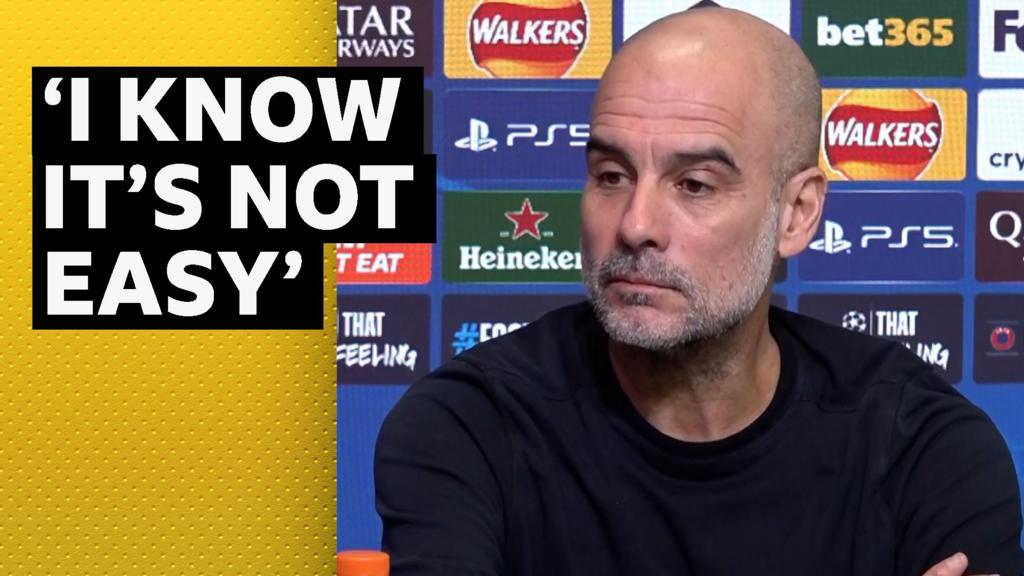Manchester City manager Pep Guardiola defends referee criticism after Wolves win
Manchester City manager Pep Guardiola and a reporter share a heated exchange over comments he made about new Premier League referee Farai Hallam following Manchester City’s 2-0 win over Wolves.
READ MORE: Guardiola apologises to ref Hallam but ‘defends’ outburst
